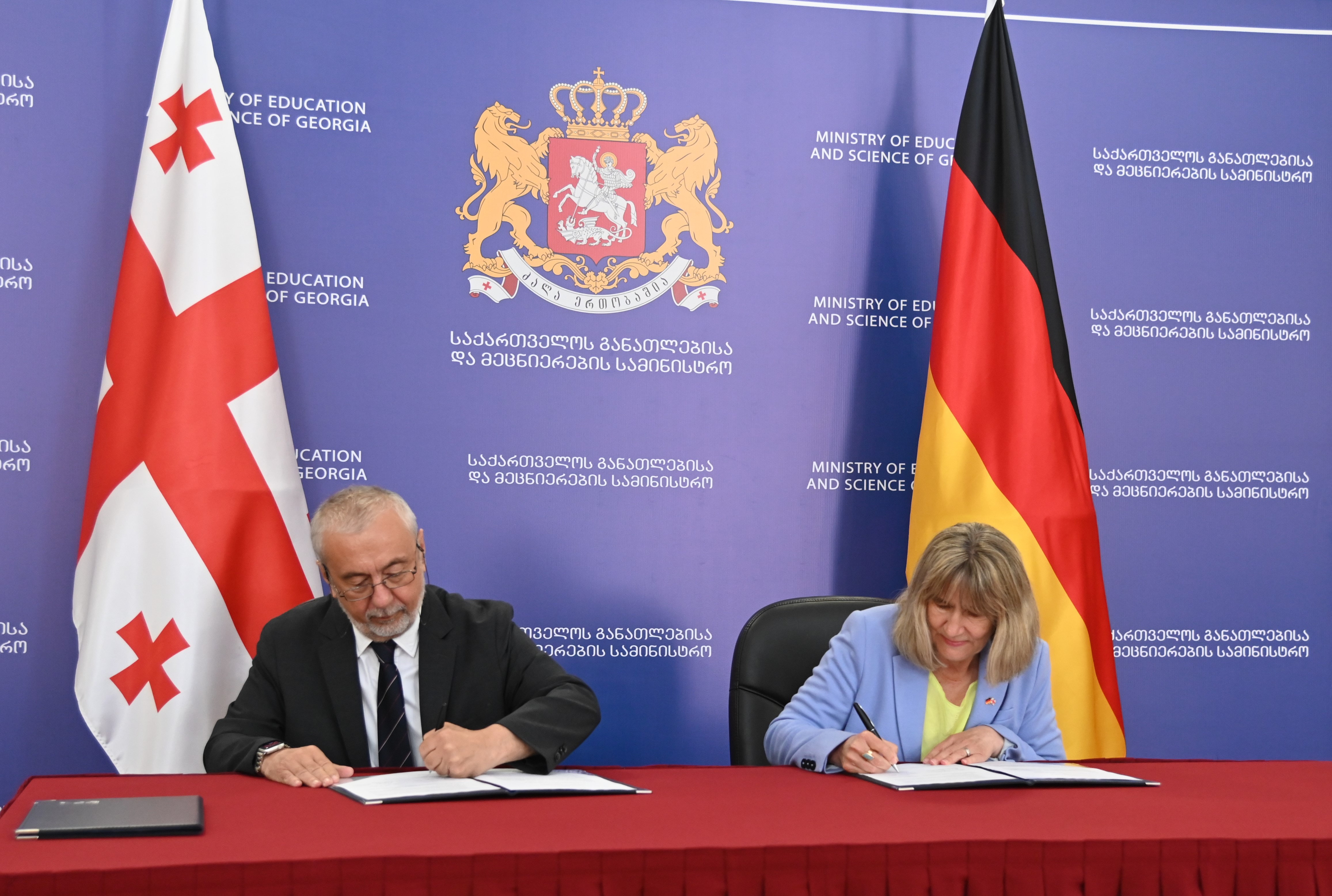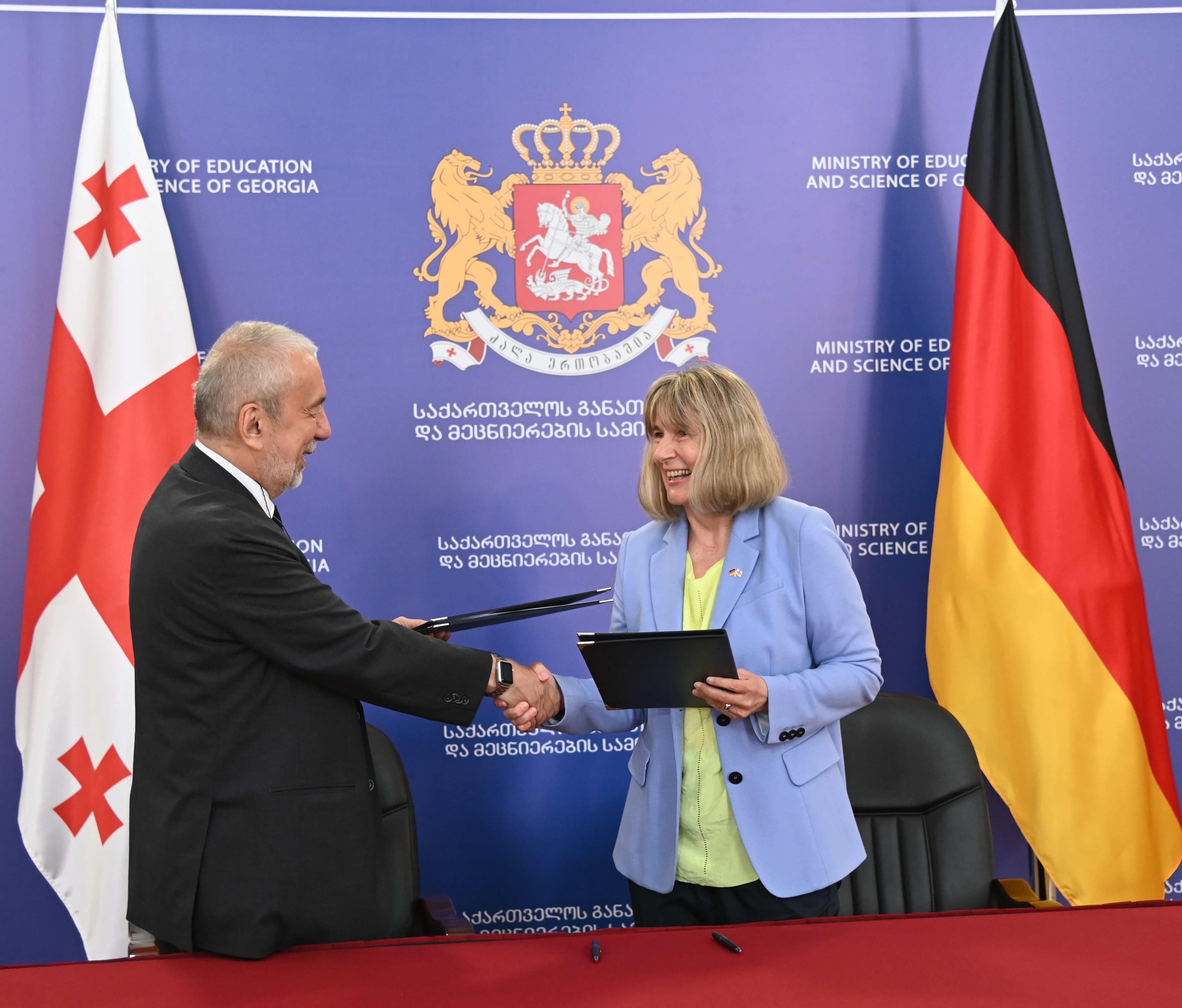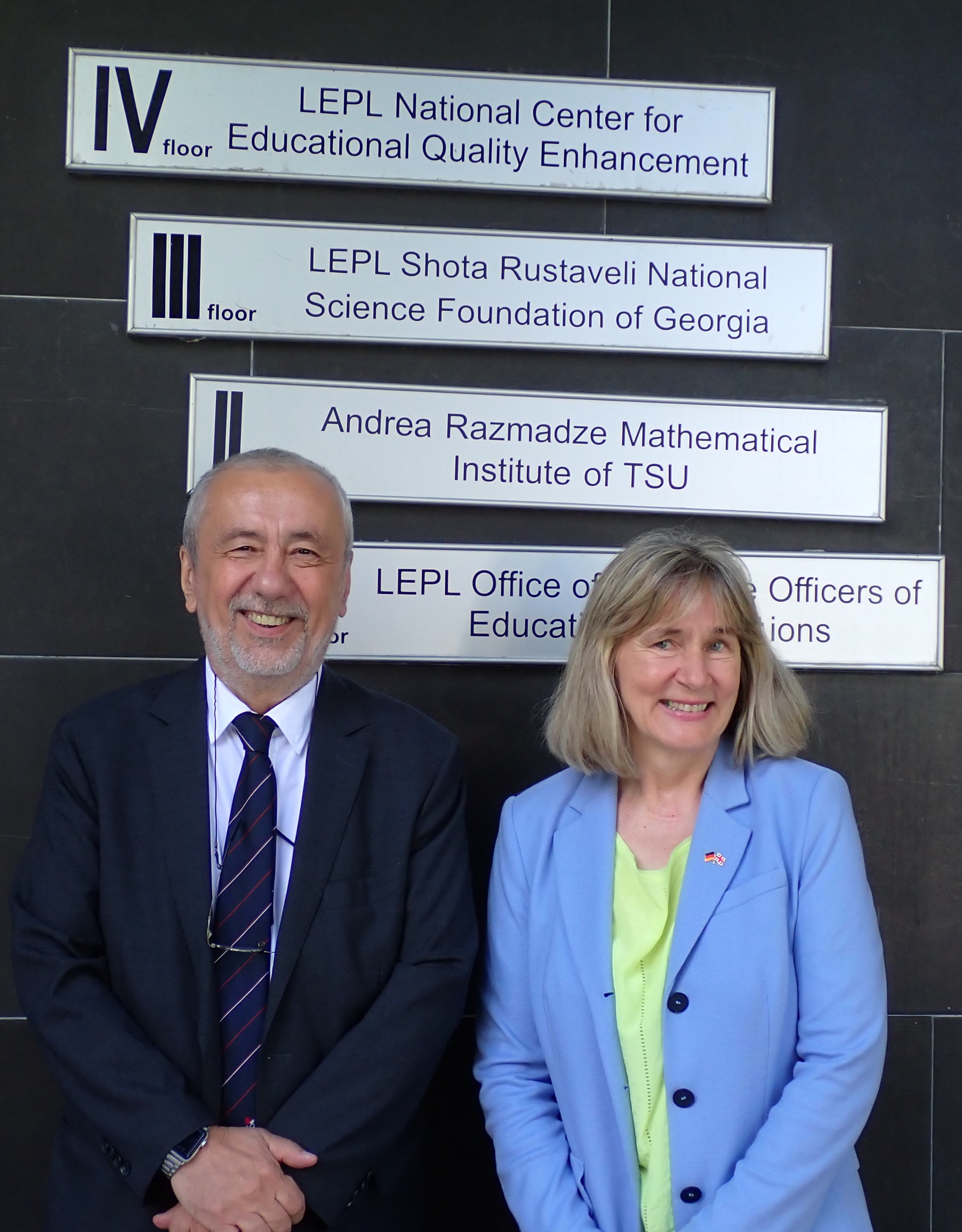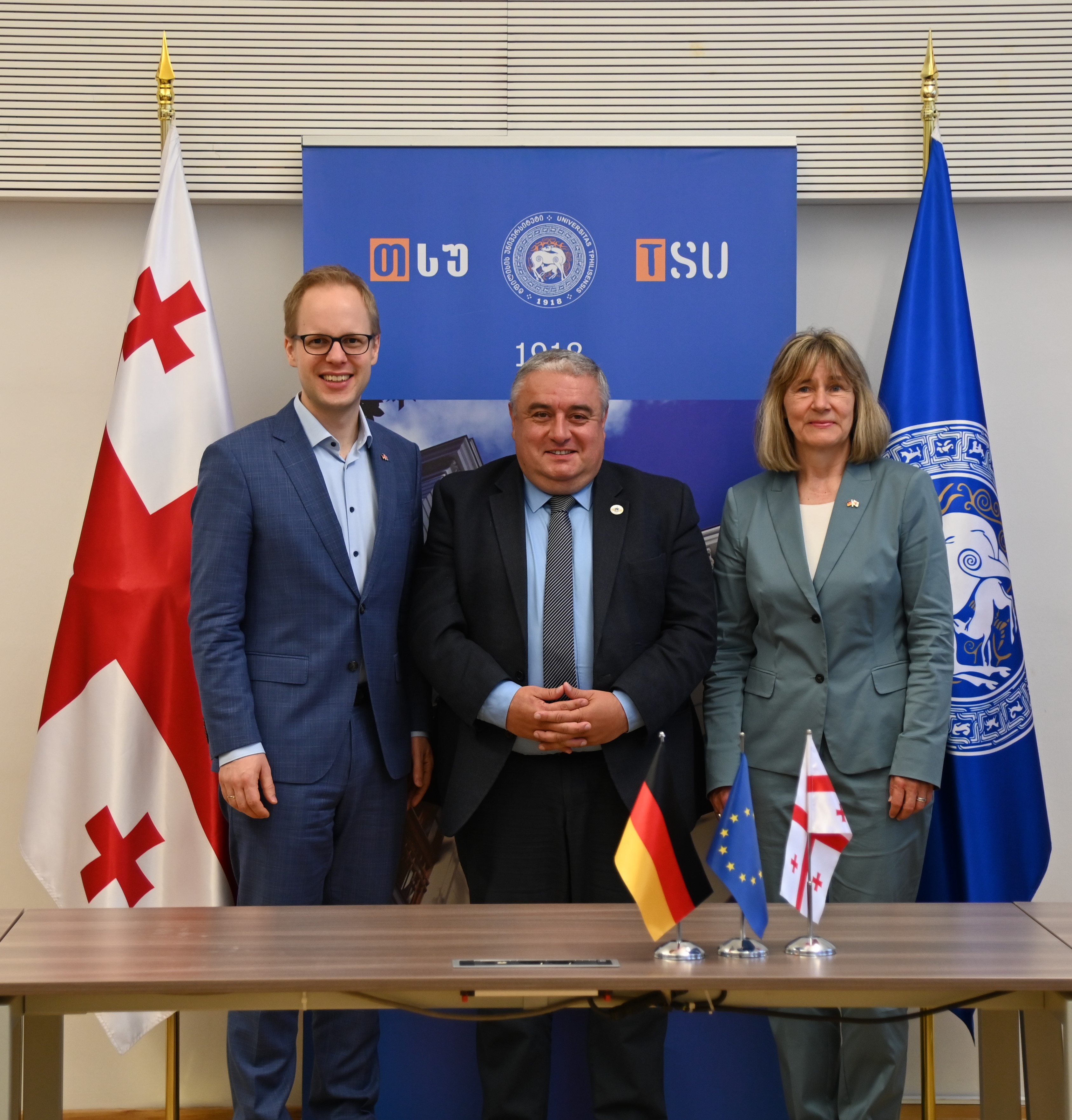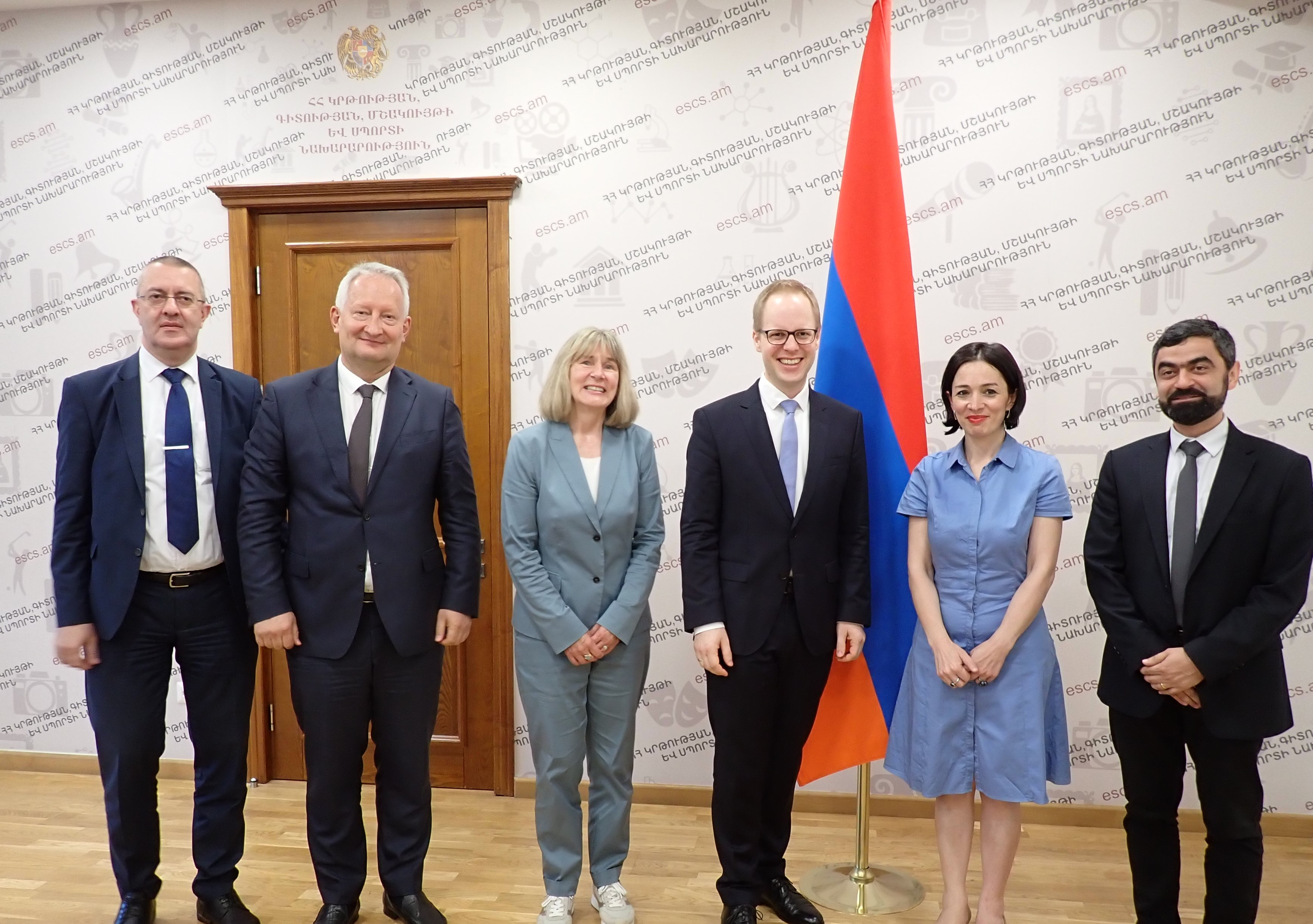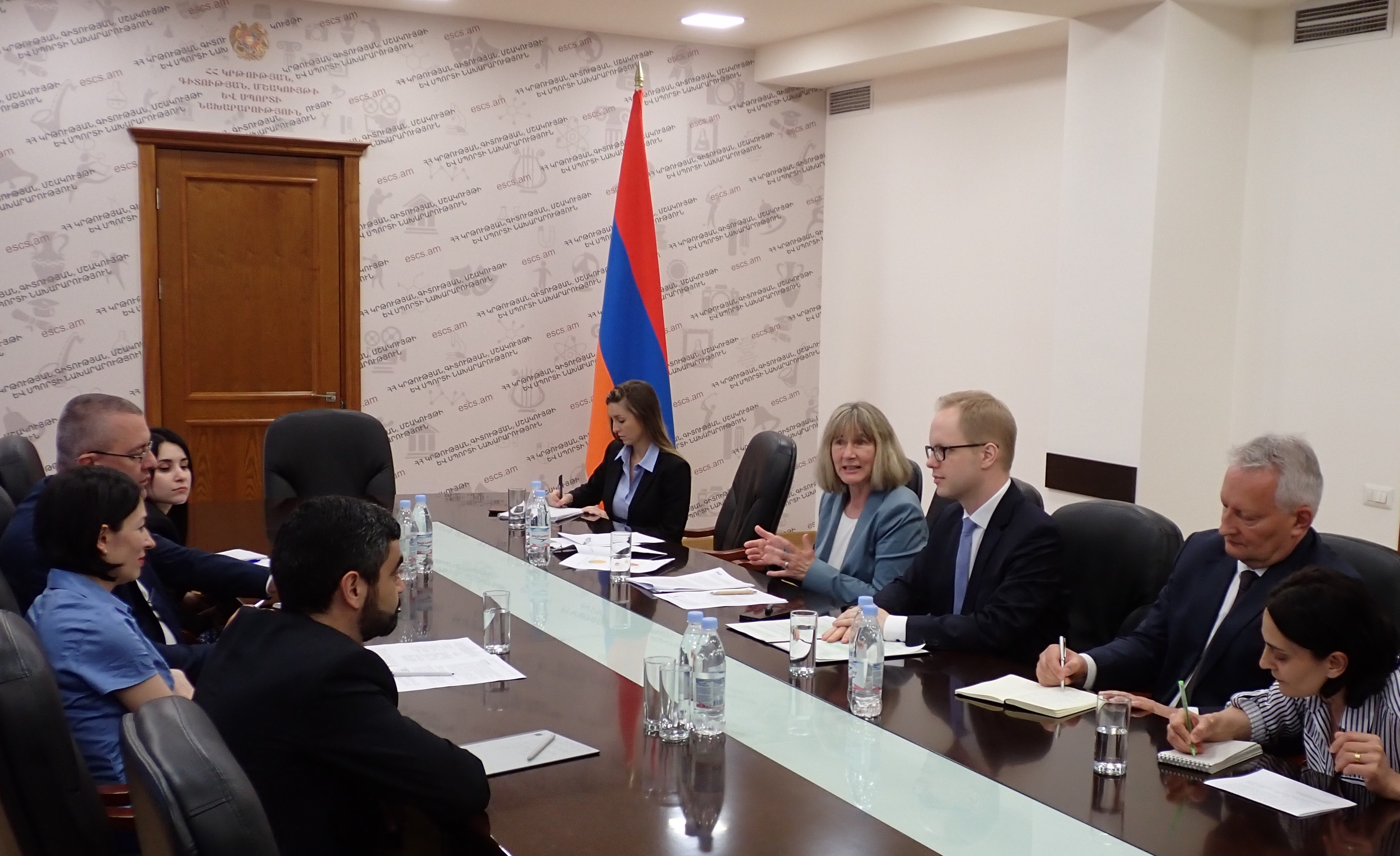DFG Expands Cooperation with the South Caucasus: Signing of a Cooperation Agreement in Georgia
(24.07.23) On a delegation trip of the Federal Ministry of Education and Research (BMBF) to Armenia and Georgia, DFG Secretary General Dr. Heide Ahrens signed an agreement with the Director of the Shota Rustaveli National Science Foundation of Georgia (SRNSFG), Professor Dr. Erekle Astakhishvili, on 12 July. The signing at the Ministry of Education and Science of Georgia in Tbilisi was attended by the Minister and the Parliamentary State Secretary of the BMBF, Dr. Jens Brandenburg.
DFG Secretary General Dr. Heide Ahrens and Director of the Shota Rustaveli National Science Foundation of Georgia Profeessor Dr. Erekle Astakhishvili sign a Memorandum of Understanding on 12 July 2023 – the DFG’s first agreement with a partner organisation in the South Caucasus.
© Jörg Schneider
In view of current geopolitical challenges, cooperation on the part of the EU and Germany in the field of education and research with the three South Caucasian countries Armenia, Azerbaijan and Georgia is becoming increasingly important. In particular, science-based initiatives on biodiversity, sustainability, the environment and artificial intelligence open up new perspectives for the DFG’s funding activities. The DFG was therefore happy to accept the BMBF’s invitation to a joint delegation trip to Georgia and Armenia. The DFG’s objective is to develop thematic priorities in these countries and establish new institutional partnerships so as to boost networking efforts in the region on behalf of science and the humanities in Germany.
The signing of the first agreement between the DFG and its Georgian partner organisation Shota Rustaveli National Science Foundation of Georgia (SRNSFG) – Georgia’s most important state research funding institution – by its director, Prof. Dr. Erekle Astakhishvili, and the Secretary General of the DFG, Dr. Heide Ahrens, is a milestone in this regard. In-depth discussions, the two organisations engaged in close dialogue on future joint activities. Operationalisation of the agreement is planned for this autumn. In the long term, the two partners are looking to develop co-financing formats and initiate joint project funding, for example. In fact, there is even a historical basis to build on here: in her speech at the signing ceremony, Ms. Ahrens recalled that a cooperation agreement was signed in Tbilisi by the DFG’s predecessor organisation, the Notgemeinschaft der Deutschen Wissenschaft (“Emergency Association of German Science”) as long ago as 1928.
DFG Secretary General Dr. Heide Ahrens and Director of the Shota Rustaveli National Science Foundation of Georgia Profeessor Dr. Erekle Astakhishvili sign a Memorandum of Understanding on 12 July 2023 – the DFG’s first agreement with a partner organisation in the South Caucasus.
© Jörg Schneider
In Tbilisi and Yerevan, the delegation talked to the German embassies and locally based German institutions to find out about current cooperation conditions and research policy issues. In addition, key common research questions were identified and perspectives for more in-depth cooperation were explored in dialogue with leading research institutes and universities as well as the relevant ministries and research funding agencies.
In Yerevan (Armenia), the delegation’s dialogue partners included the Minister of Education, Science, Culture and Sport of the Republic of Armenia, Zhanna Andreasyan, and the chair of the research committee that is also responsible for awarding grants, as well as the two Vice-Ministers for the Economy and the Environment. The programme also included discussions with the administrations of the American University of Armenia, Yerevan State University, the State Agricultural University, the State Universities of Engineering and of Economics, and the Brusov University of Languages and Social Sciences.
DFG Secretary General Dr. Heide Ahrens and Director of the Shota Rustaveli National Science Foundation of Georgia Profeessor Dr. Erekle Astakhishvili sign a Memorandum of Understanding on 12 July 2023 – the DFG’s first agreement with a partner organisation in the South Caucasus.
© Jörg Schneider
In Tbilisi (Georgia), the delegation visited the Minister of Science and Education Giorgi Amilkhvari, the Minister of Regional Development and Infrastructure Mzia Giorgobiani and the Vice Minister of Environmental Protection and Agriculture, as well as the heads of Ilia State University and Tbilisi State University. At the Georgi Eliava Institute of Bacteriophages, Microbiology and Virology, Institute Director Mzia Kutateladze presented her ongoing research to the visitors.
Through its involvement in this trip, the DFG was able to make a targeted effort to build institutional cooperation with partner organisations in the South Caucasus so as to establish improved framework conditions for excellent research projects and better exploit existing potential. The mutual interest on the part of the scientific communities is clearly reflected in an already considerable number of funded bilateral and trilateral projects with Georgia, Armenia and Azerbaijan involving leading universities and research institutes.
In the last five years, the DFG has already been able to fund almost 60 projects relating to these countries, the focus of funding to date being in the area of the humanities and social sciences at around 75%. For example, Ruhr University Bochum is conducting research into “New Methods for Historical Research in Byzantine Studies” together with Ilia State University in Georgia, while in a cooperation between the Humboldt-Universität zu Berlin and Yerevan State University in Armenia, studies were carried out into the effectiveness of protected areas as a measure against the loss of biodiversity of species and ecosystems.
Increased involvement in the region from a research policy perspective will give rise to new cooperation opportunities and prospects for excellent research projects in the future, too. Based on the new agreement, the DFG is also planning further joint activities with the Shota Rustaveli National Science Foundation as well as bilateral events in Georgia this autumn.
